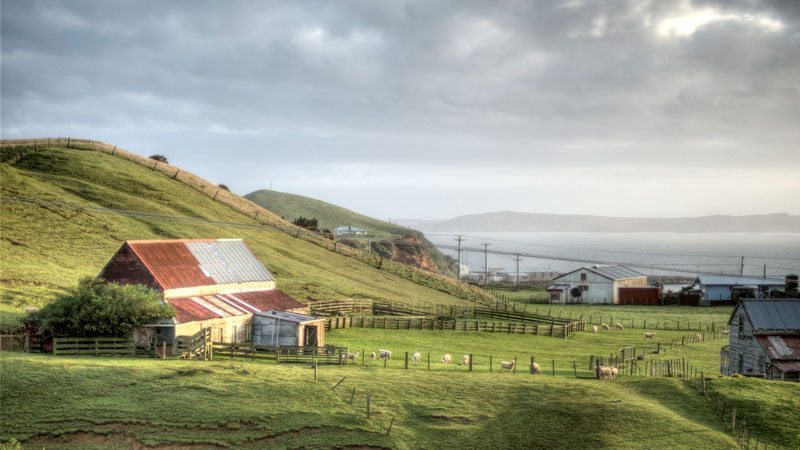If total isolation and total wilderness excites you, the Chatham Islands may just be the destination you have been searching for. Located east of the South Island, the ‘Chathams’, as they are affectionately known, is approximately a 1 hour flight from Wellington or Christchurch! The distance that separates the islands from the mainland puts Chatham Islands 45 minutes ahead of standard New Zealand time, and a close look at the international dateline shows that the Chathams are the first to see the light of every new day – a fact that made the islands famous at the time of the new millennium.
With a declining population of just under 700 and an extremely exposed but temperate climate, the Chatham Islands really are the ‘last place on earth’! However, the contrast of rugged coastlines and towering cliffs, volcanic peaks, lagoons and peat bogs, empty beaches, remote farms, wind-stunted vegetation and dense patches of forest makes the Chathams a mysterious and wild adventure.
The Chatham Islands are renowned for being the last home of the Moriori, their peaceful existence coming to an end in the 1820’s and 1830’s as European and American whalers and sealers began to arrive, not to mention Maori tribes from the mainland. The Moriori are believed to be Polynesians who sailed to the islands from New Zealand between 900AD and 1500AD and since the first arrival of a European in 1791 the population of Moriori dwindled from around 2000 to only 100 by the 1860’s. By the beginning of the 20th century, there were just 12 full-blooded Moriori left, a result of killing, enslavement and interbreeding with the Maori tribes who took over the islands. There are now believed to be over 300 Moriori descendants and today Moriori, Maori and Pakeha (Europeans) live together as Chatham Islanders.
Some of the sights to be seen are reminiscent of the Moriori history of the islands. Tree carvings and rock engravings are the main attractions, another being that of the unusual statue of the ‘Last Moriori’, Tommy Solomon. Apparently, you can watch Tommy’s eyes follow you as you wander around the rocks below.
An unexplained phenomenon is that of the fossilised shark’s teeth that are pushed up by the waves in the Te Whanga Lagoon. The teeth are about 40 million years old and are a local heritage – not collector’s items! Shipwrecks dotted around the islands are a scuba divers delight while trampers will also find interesting country to explore with Department of Conservation (DOC) walking tracks of anything up to an hour to a full day in duration. There are many beautiful beaches popular for fishing and for catching crayfish, one of the major industries in the islands. Snorkelling for Paua (an unusual, but superb shellfish known as abalone in other parts of the world) is a treat for many New Zealanders, especially now as they are hard to find on the mainland coastline.
There are 18 species of bird unique to the islands including the endangered black robin and the rare taiko. DOC staff can give you the best viewing spots for bird watching – something worth doing given the efforts undertaken in protecting these species so close to extinction. Pukeko’s and wekas, native to the mainland, along with many species of duck are common.
Seemingly dilapidated, the scruffy but charming towns on the islands adequately service the inhabitants of the islands. The only sizable town, Waitangi, hosts a couple of shops, a hotel, motel, and a post office. Most roads are unsealed and there is no public transport at all, but car and 4-wheel drive hire is available. Walking seems to be a popular form of transport! Air Chathams offer sightseeing and trips to Pitt Island, and it is possible to hitch lifts on fishing vessels although with notoriously savage seas, this may not be your preferred option!
Accommodation on the island includes the hotel in Waitangi, a motel with self-contained units, a guesthouse, a lodge and a backpackers hostel. Homestays with locals are also possible and ask the locals for permission before camping anywhere! It would be safer to make reservations in advance – do this when you book your airfare.


Leave A Comment